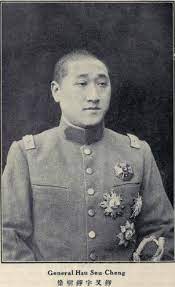Chang Chih-chiang T. Tzu-min H. Tzu-chiang West. Paul C. C. Chiang Chang Chih-chiang (1882- ? ) was a military officer associated with Feng Yü-hsiang (q.v.) for many years prior to 1927. A native of Chihli (Hopei) province, Chang Chih-chiang was born into a landlord family in the Yenshan district. Since his father was the village […]






